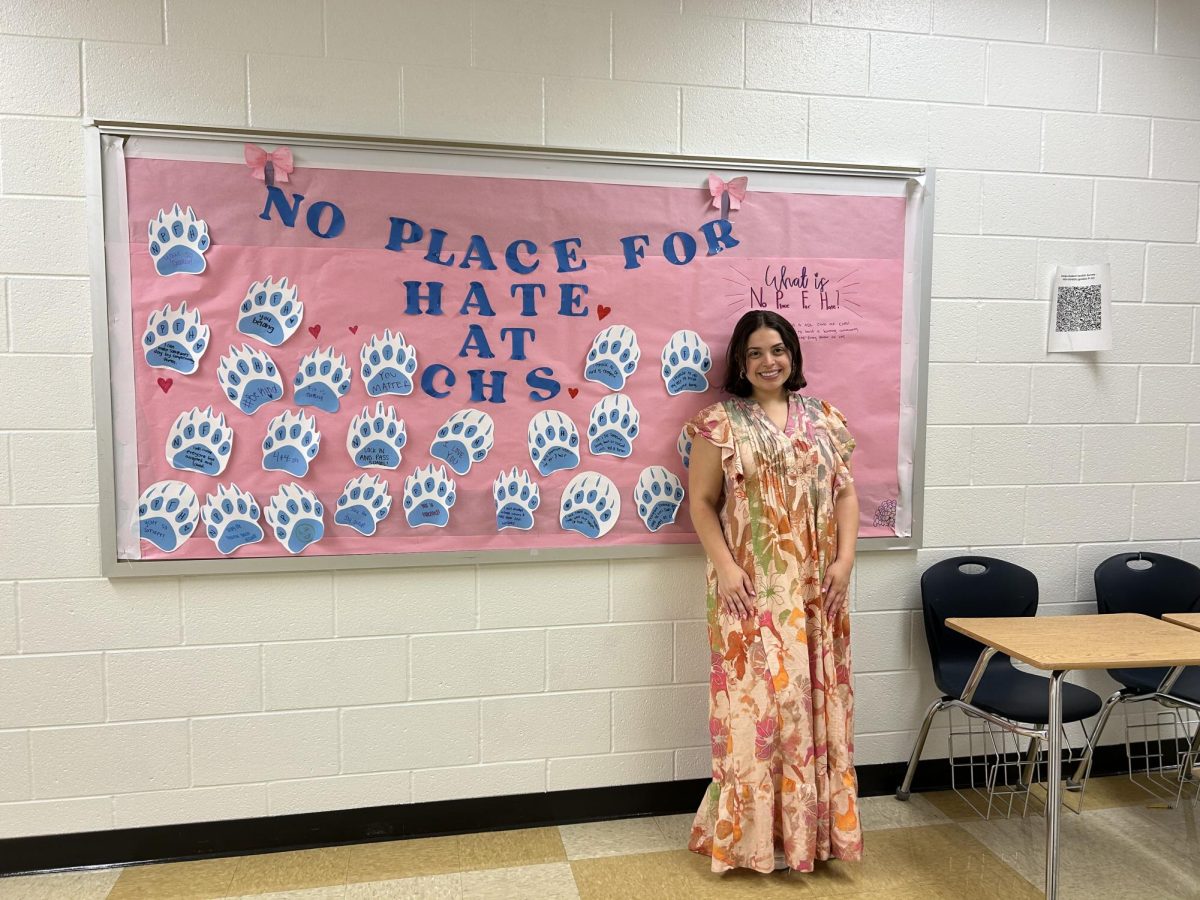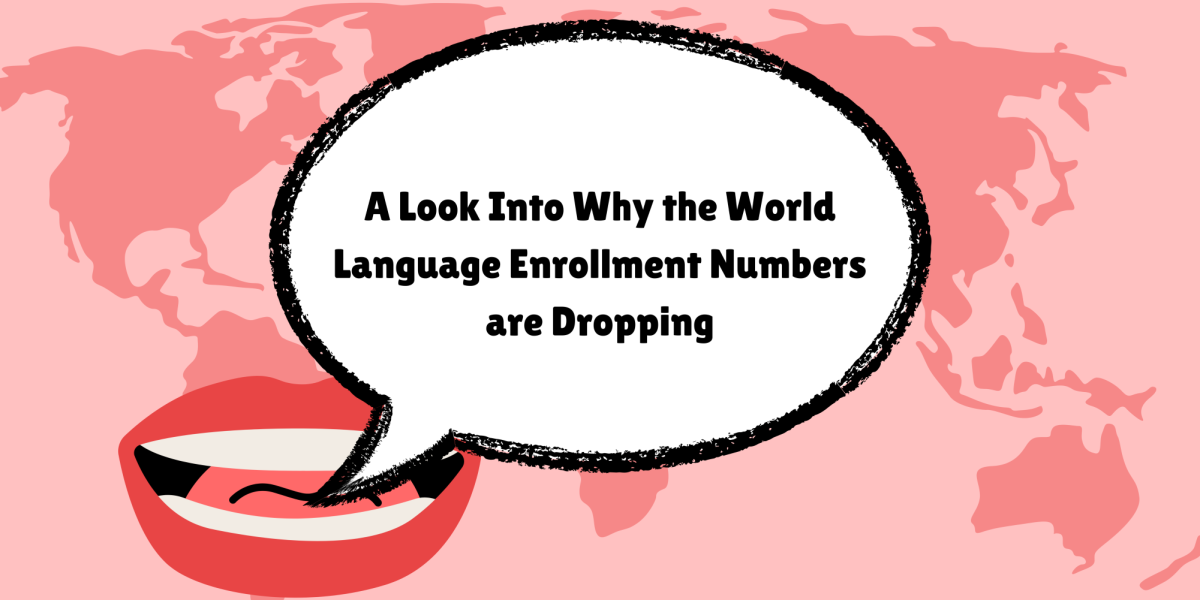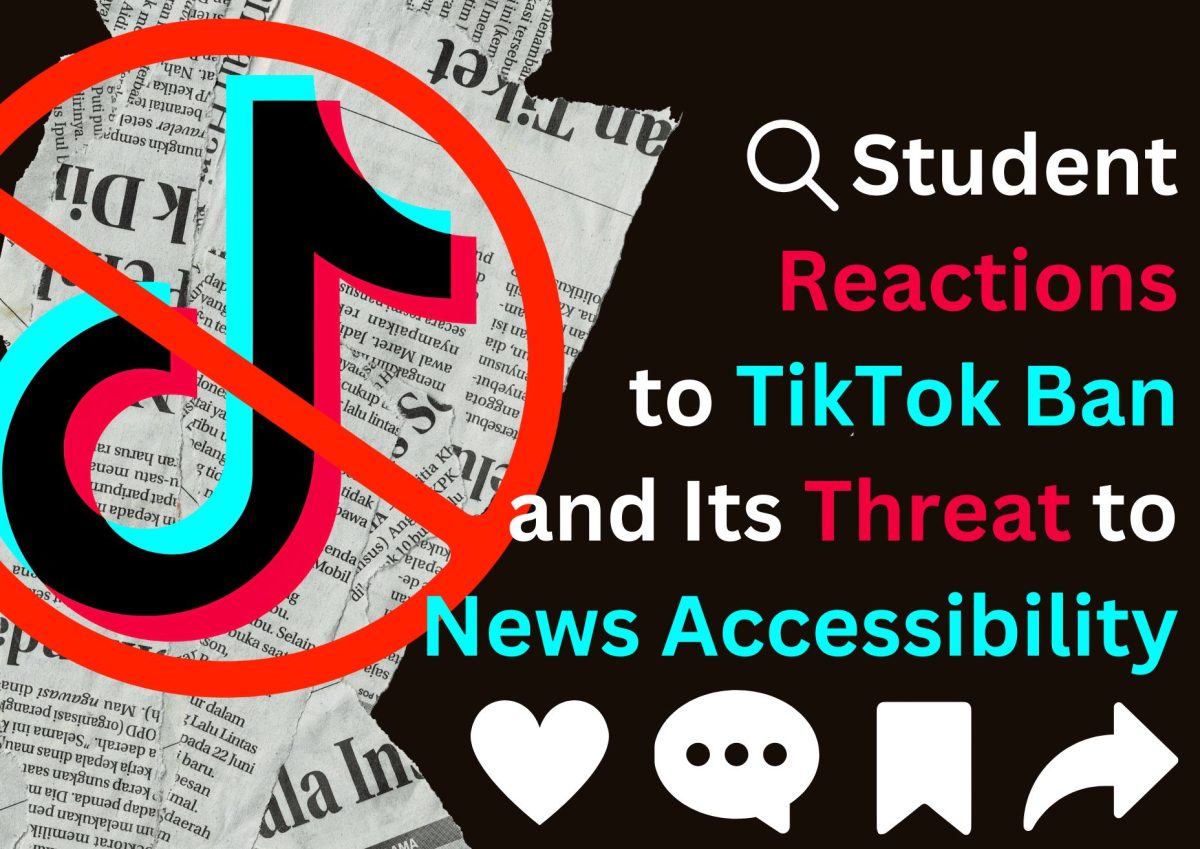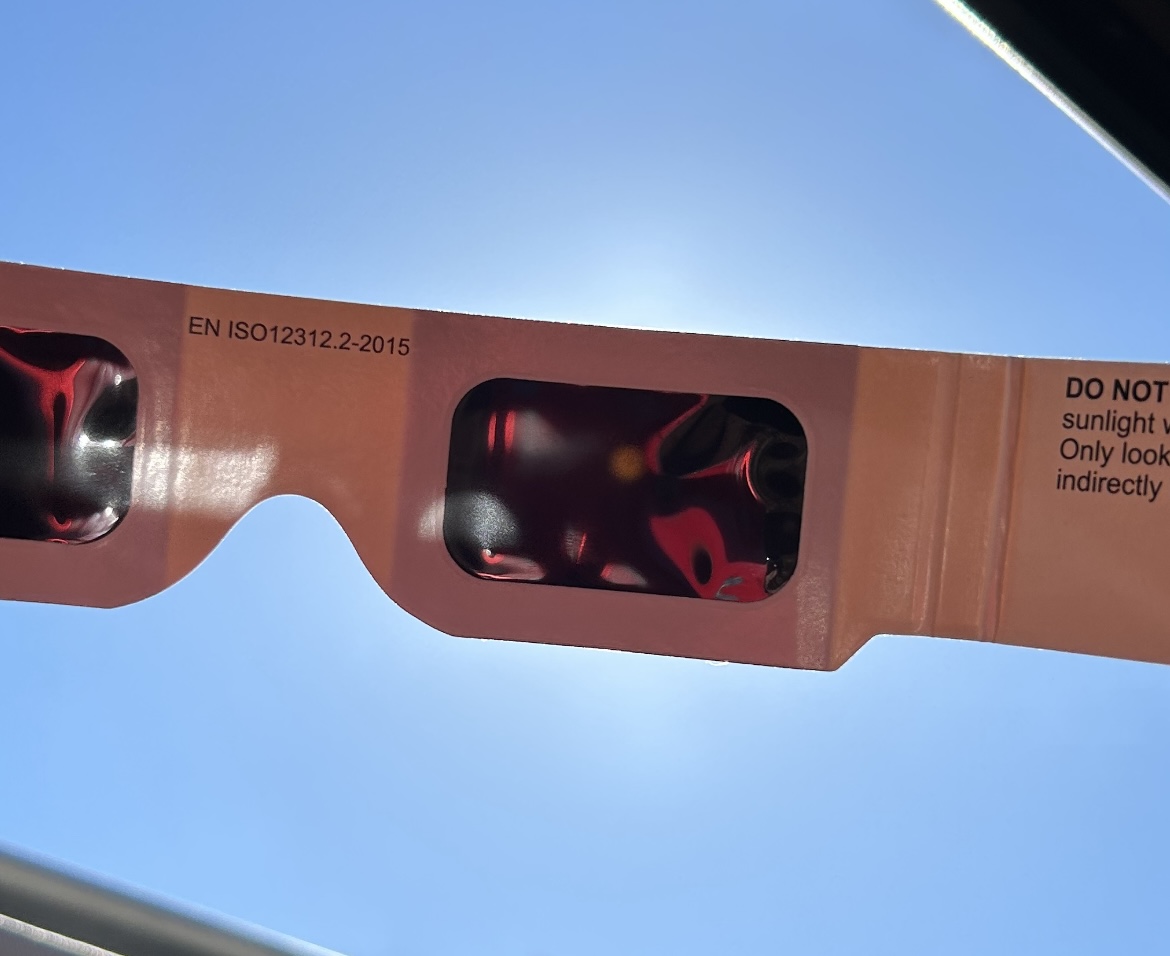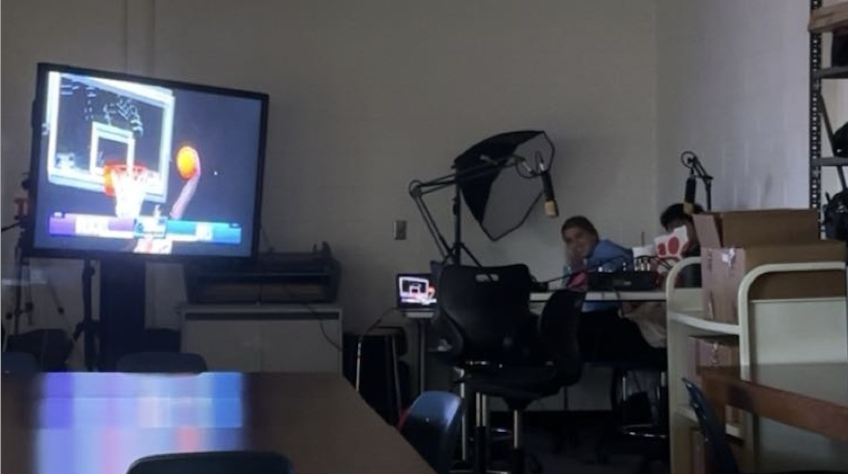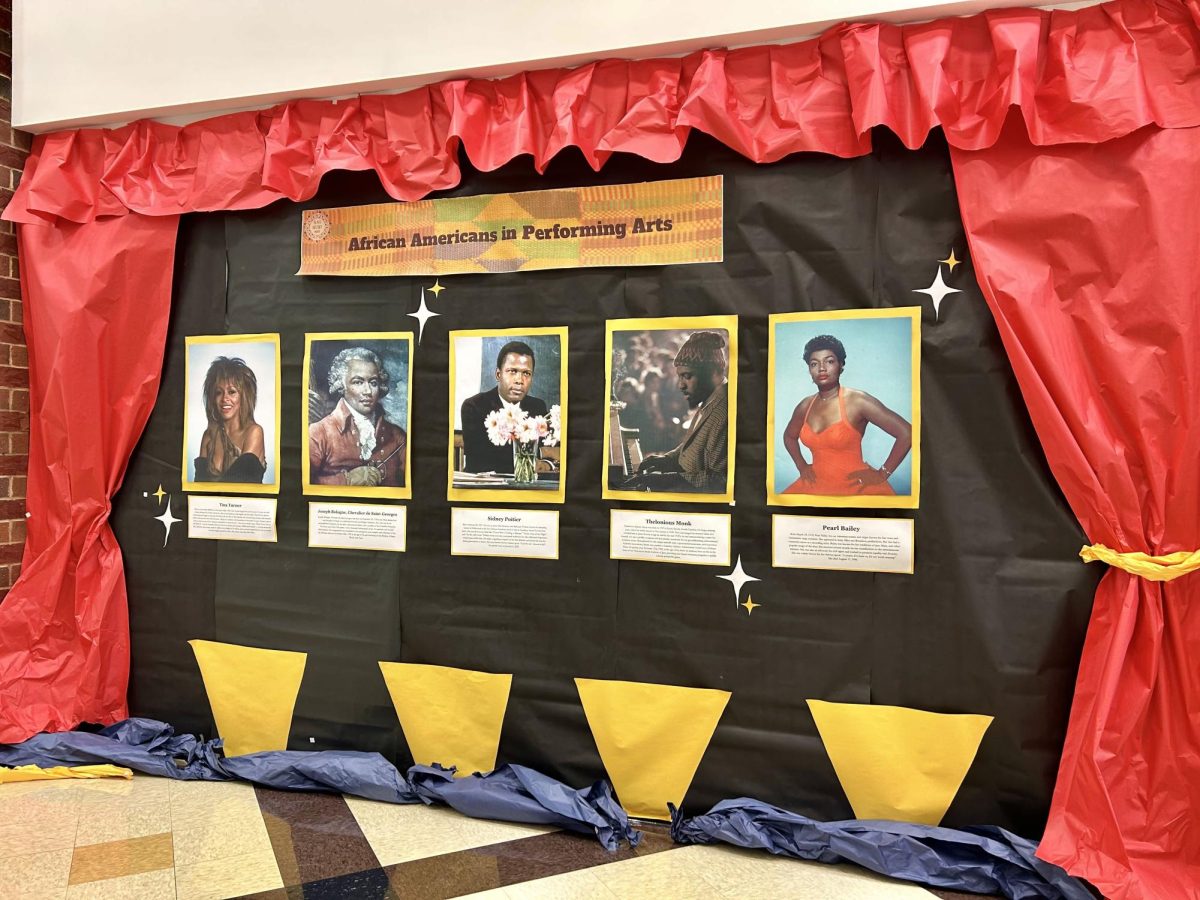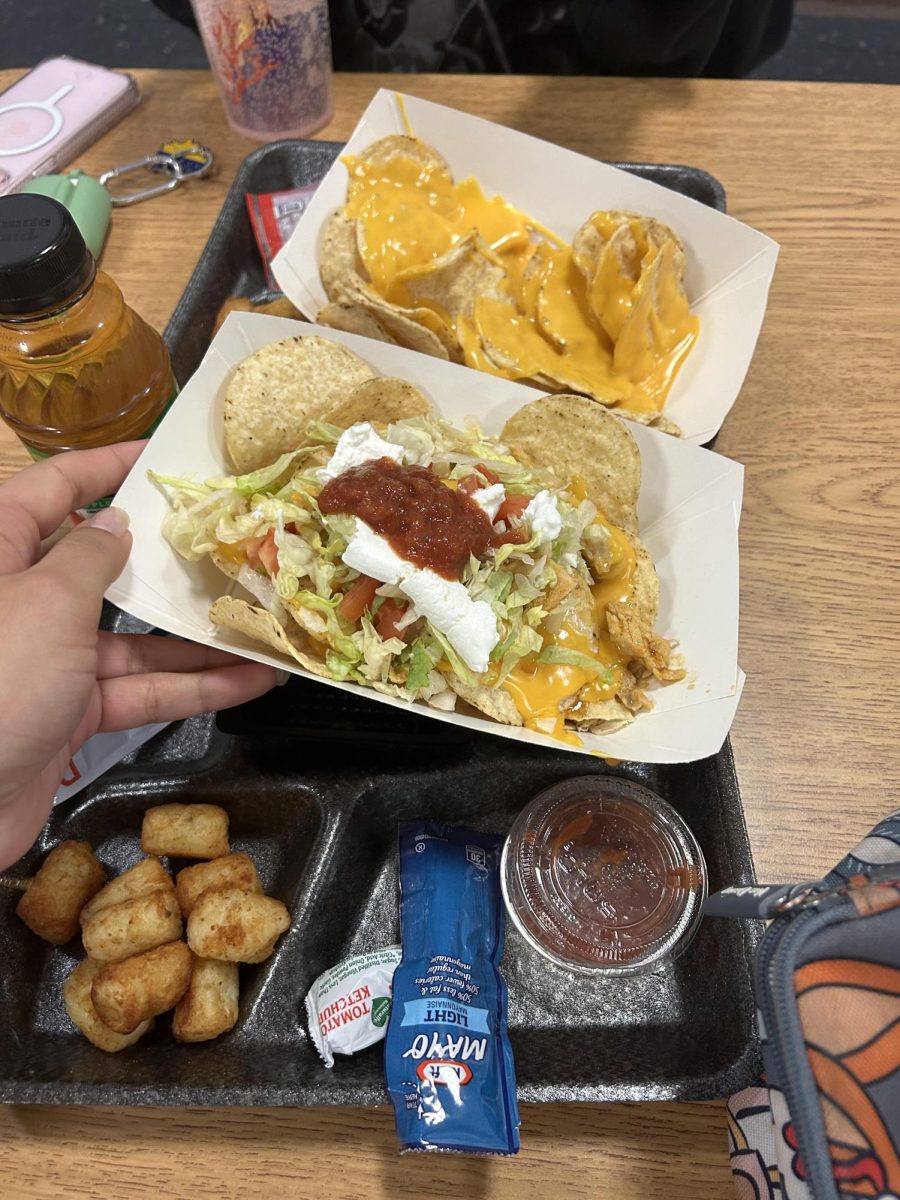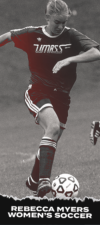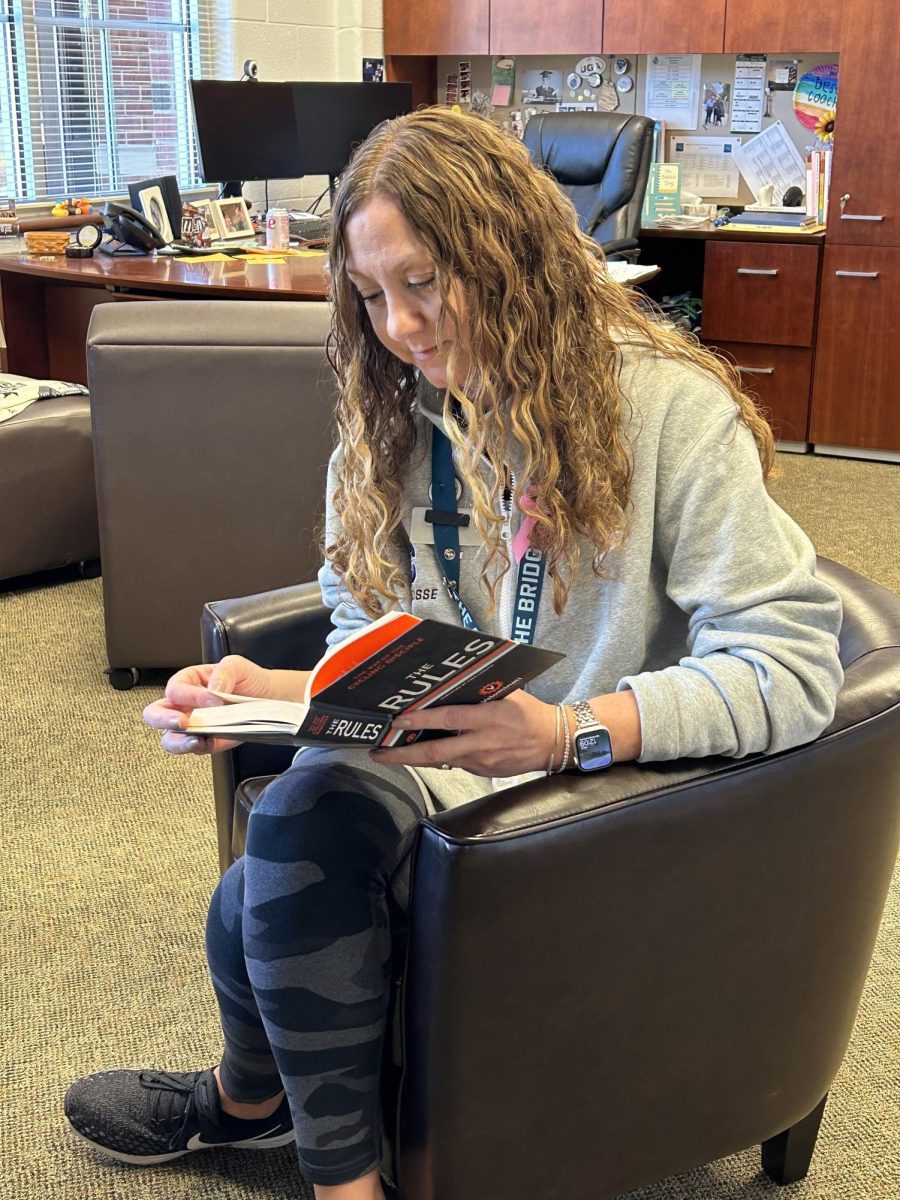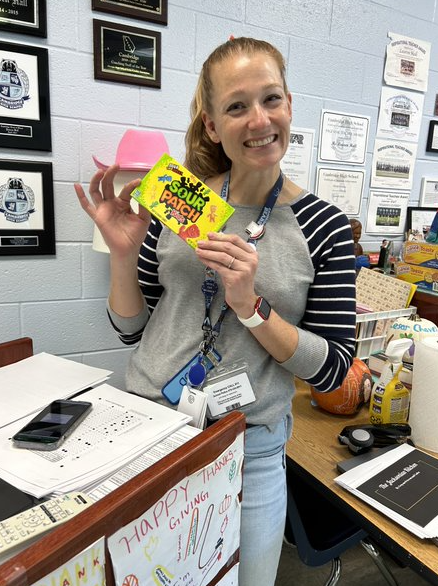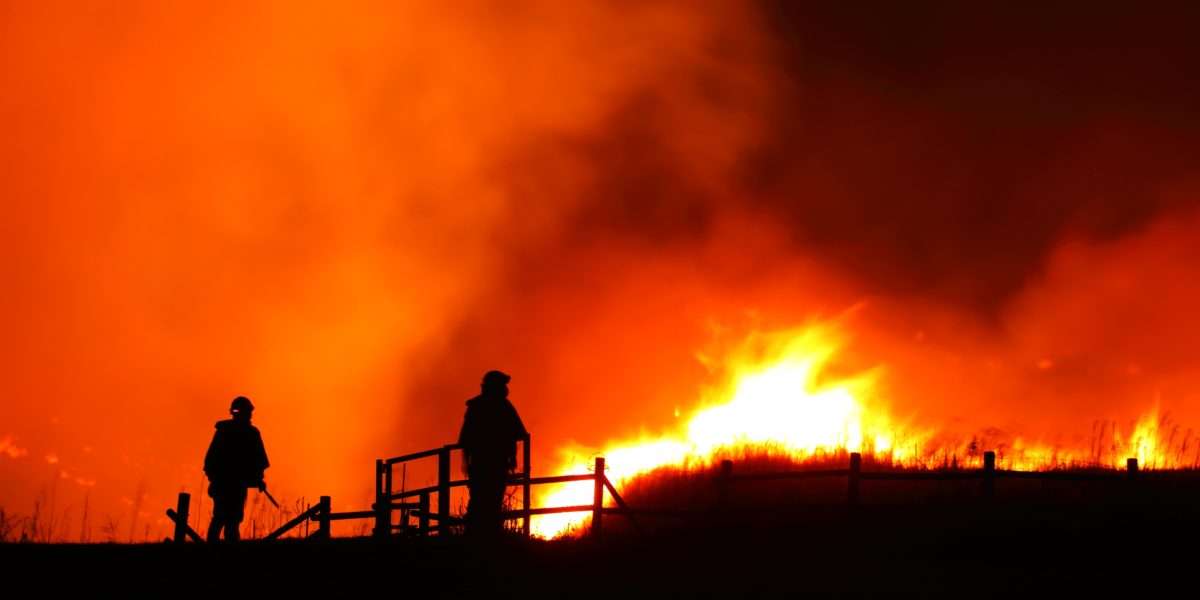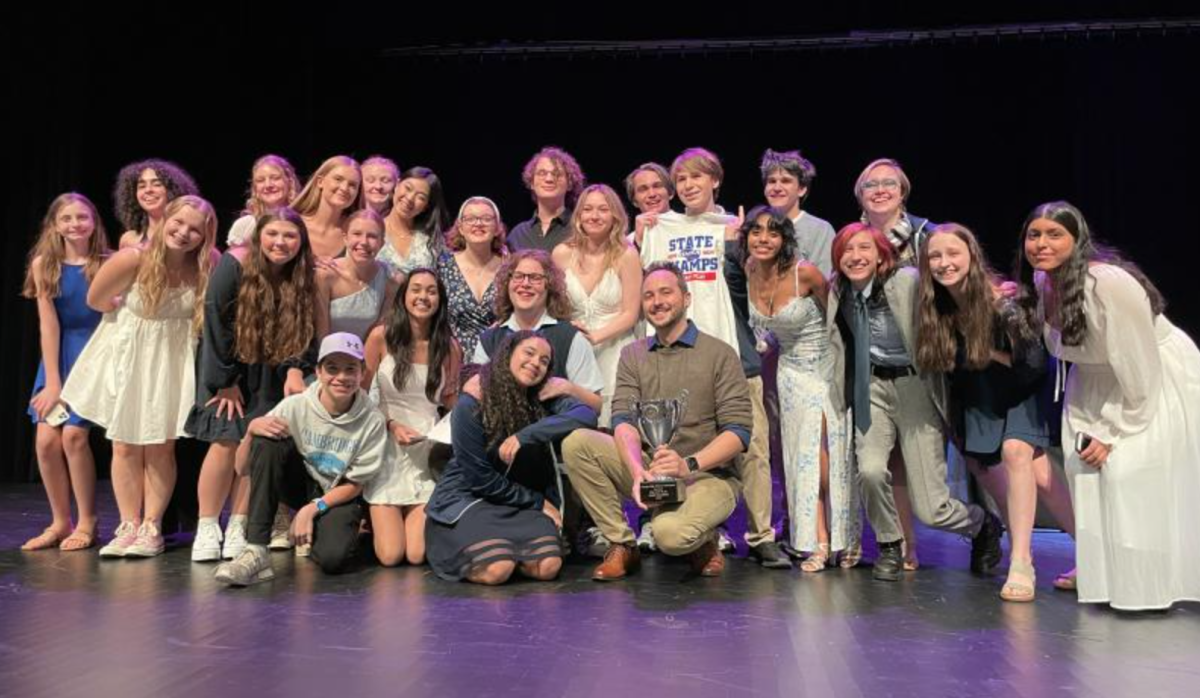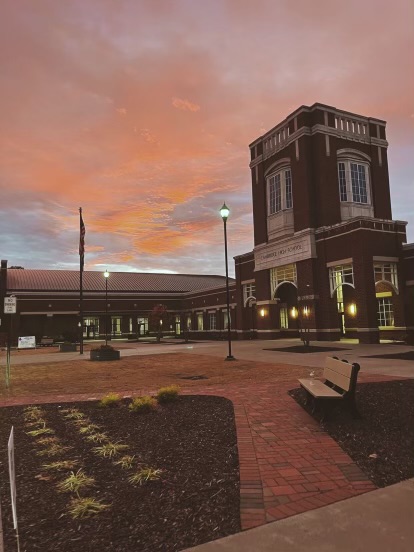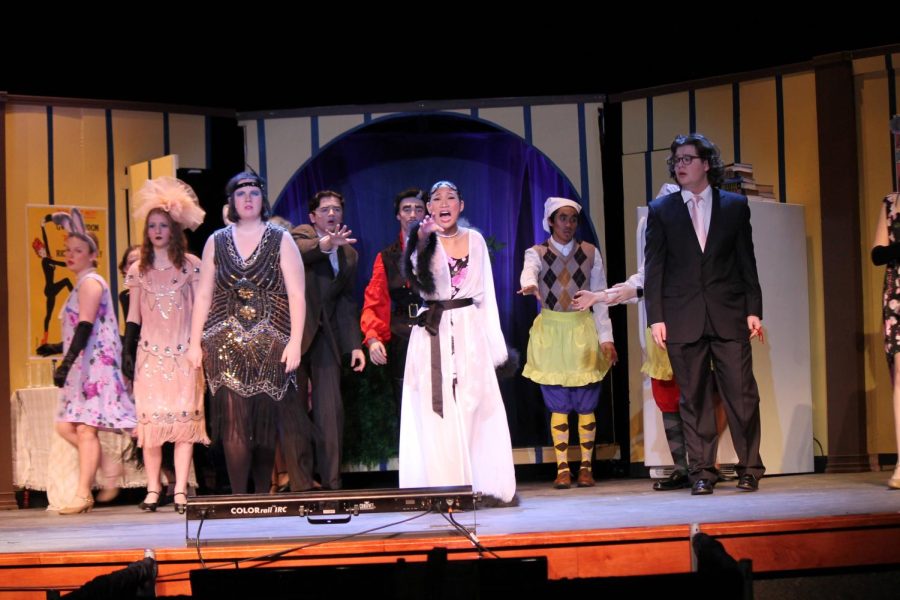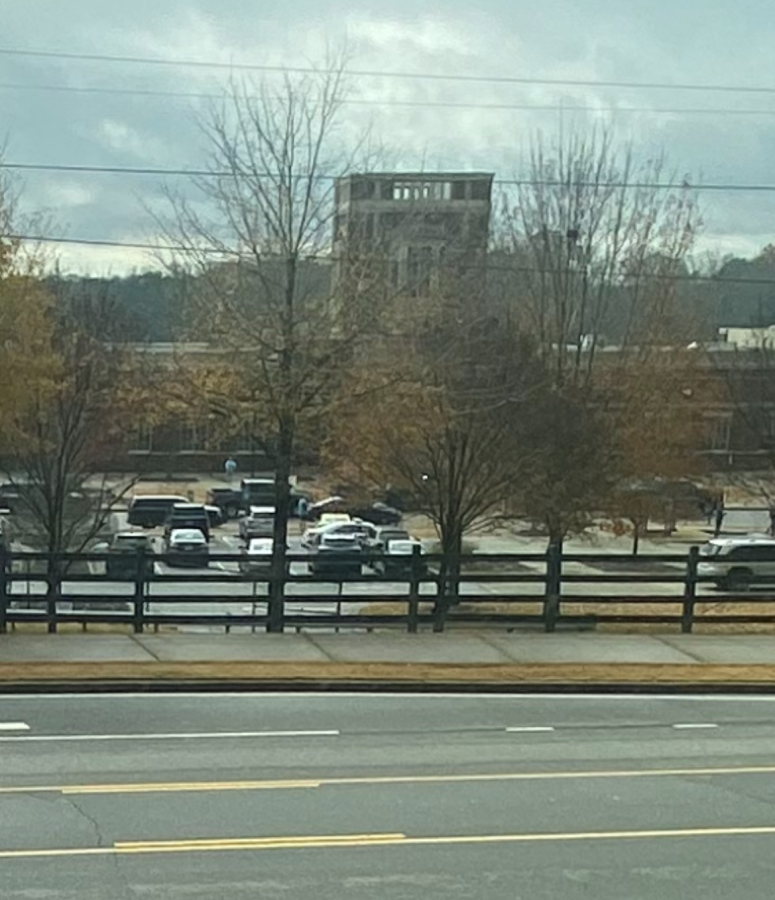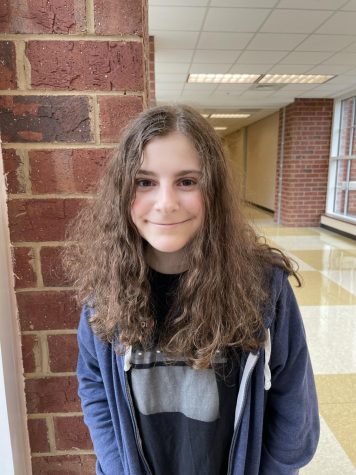English teacher Korin Pinsky is the supervisor for the school’s first No Place for Hate chapter. She is also its biggest cheerleader.
And, during the club’s rocky inception in first semester, she was its only cheerleader.
According to the Anti-Defamation League (ADL), an international organization that specializes in combating antisemitism and racial bias and promoting inclusivity, No Place for Hate (which is sponsored by the ADL) promotes these same ideals in schools.
No Place for Hate was made to get high schools more involved in combating antisemitism and promote kindness and inclusivity in schools, according to Pinsky.
During her second year at the school, Pinsky said her students enjoyed the unit on Art Spiegelman’s “Maus,” a graphic novel about an elderly Holocaust survivor sharing his story with his son. Students enjoyed the class talks on diversity and differences, she said, “and I felt like students were really interested and passionate about it and they really liked the unit, but they didn’t know that much.”
Later that semester, NPFH’s southeast region Education Director Nicole Murray reached out to the school and asked if it would be interested in creating a No Place for Hate club and chapter, Pinsky said.
“They were like, ‘Would you like to head the club?’ And at that point I was two years at Cambridge – I didn’t yet have a club, I didn’t really have a sport – so I was like, ‘Yeah, I would love to get more involved in this school and do it.’”
Over the course of the semester, NPFH made a board of positive affirmations, located outside Pinsky’s classroom. They have also given those taking EOCs in April good luck notes.
Even on the last week of school, according to the NPFH Remind, NPFH plans to write cards for the families of the victims in a car accident on Tuesday, where three people died, one of which an Alpharetta High School senior. In the car were three Alpharetta High School seniors and two UGA freshmen.
However, the creation of the club was slow-coming, and because many students had already committed to other clubs and sports, recruiting members became a challenge, and the school was unable to get designation as a No Place for Hate school.
This year, however, Pinsky was determined to get designation and get members. So, she advertised NPFH at the school’s club fair in August.
“It was just me and a clipboard,” she said, laughing. “I didn’t realize everyone was going to have big” – she made a large square shape with her arms, suggesting a tri-fold board – “things. I just had a little pamphlet and a Remind.”
Some students did join eventually, but when the first meeting came around, “nobody showed up,” she said.
“I think it’s really difficult to get members to join not because kids aren’t interested or don’t care about those things, it’s just kind of hard to tell kids, ‘Join our club that’s based on kindness and accepting people’s differences.’ Kids might feel awkward or scared.”
Pinsky said she believes the school would benefit from a group like NPFHa the school is not the most diverse, and the club would provide exposure to different backgrounds.
“I think that we really want to make everybody feel really welcome here and give a voice to maybe some groups of kids who maybe feel like they don’t have a voice,” she said. “That’s something I tell the kids. If you’re passionate about making this a great place for everybody where people feel safe, respected and seen and heard, and you care about people being kind, then come join the club.”
On October 3, for the students reading “Maus” by Art Spiegelman, Pinsky and the English department were able to set up a speaker event for a Holocaust survivor to come to the school and recount his experiences.
The speaker, Hershel Greenblat, engrossed the crowd in his life story – from details about his parents, being born in a cave, fleeing Nazi concentration camps and eventually finding refuge in the U.S.
“The only crime they had ever committed was that they were Jewish,” Greenblat said of his family, friends and neighbors, most of which did not survive Nazi concentration camps. He emphasized this fact by repeating it several times throughout his speech.
Greenblat concluded his speech with a tribute to his parents and U.S. military that helped put an end to the Holocaust, and with a few wishes.
“The first thing you learn is the number,” he said. “You can’t put that number through your head. Six million Jews. That is one human being six million times. If it weren’t for the U.S., six million would have been higher.”
This is where several students listening got emotional.
“You are the last generation that will hear from a survivor,” Greenblat said. “It’s the textbooks from here on out.”
Greenblat said he wants students to love and respect their parents, teachers and, above all, each other.
“It doesn’t matter if you’re white, Black, Hispanic – we are all human beings. Treat each other with respect. It’s just human decency.”
This is, at the core, what NPFH was founded on: promoting human decency and treating others with kindness.
As of May, NPFH is 40 members strong, according to club President Charli Katz, a sophomore.
Katz officially joined NPFH at the beginning of January, “just when initiative was beginning to be taken for the club,” she said over Remind message. At that time, she was one of the only members, which she said motivated her.
“I had such initiative to grow the club from the ground up, in which I valued quality with new members rather than quantity,” she said.
She said she hopes for the club to gain traction to spread kindness.
“My experience being president has opened my eyes to the students who don’t feel included in our school,” she said. “The issues that are circulating with mental health and kindness need to revolved, and being a leader in this movement is really empowering and makes me feel confident in making a difference.”
